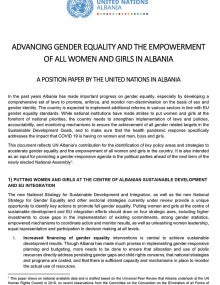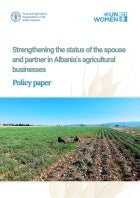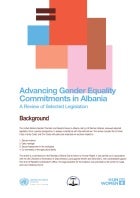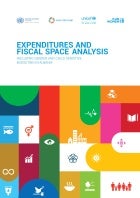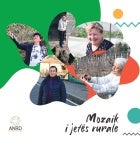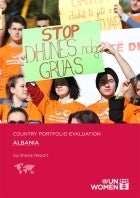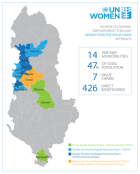1 - 6 of 6 Results
Date:
This policy paper highlights best practices from Belgium, France, and Spain, offering valuable insights for Albania as it advances toward EU accession and gender equality, with the aim of promoting women's rights and boosting economic opportunities in agriculture.
Date:
The United Nations Gender Thematic and Results Group in Albania, led by UN Women Albania, reviewed selected legislation from a gender equality perspective, to assess compliance with international legal standards, including EU gender aquis.
Date:
This analysis aims to shed light on the scope of gender responsive fiscal policies to address gender and child sensitive socio-economic vulnerabilities. This report analyzes the selected gender-sensitive fiscal policy and the mechanisms through which the policies affect social protection systems including women labor force participation, wage gaps, GDP growth, public fiscal balances, income distribution, and poverty.
Date:
This photo album aims to showcase rural Albania, where women take on many roles. It contains different stories of women and girls from the areas of Puka, Elbasan and Kolonja, focusing on their challenges in their daily lives, family, work and leisure. This photo album was prepared by Albanian Network for Rural Development, a UN Women partner within the "Gender Rural Equality and Torusim” (GREAT) project, financed by the Italian Government.
Date:
This report presents the main findings, lessons learned, conclusions and recommendations of the Country Portfolio Evaluation of the UN Women Albania Country Office Strategic Note 2017– 2021, conducted between January and July 2021.
Date:
In the framework of the Gender Sensitive post-earthquake Recovery and Reconstruction project, UN Women conducted 10 Gender Sensitive Value Chain Analysis (GSVCA) in the earthquake-affected municipalities of Shijak, Durrës, Krujë, Tiranë, Kavajë, Vorë, Rrogozhinë, Kurbin, Mirditë and Lezhë. These GSVCAs identify and promote ‘win-win’ scenarios that guarantee market sustainability, and provide development opportunities that address problems in a value chain in conjunction with addressing gender inequalities inherent in and along the chain.
